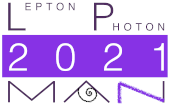Conveners
Science in Society: Poster session
- There are no conveners in this block
Science in Society: Parallel 1
- Mark Richard James Williams (The University of Edinburgh (GB))
Science in Society: EDI and public engagement
- Sahal Yacoob (University of Cape Town (ZA))
Science in Society: Poster Prizes
- Ulrik Egede (Monash University (AU))
Despite modern particle physics being an international endeavour, the vast majority of its educational material is only published in English. By making material available in other languages, physicists can make in-roads with new audiences – especially those very young or very old – in their home countries. The ATLAS Collaboration has published colouring books, activity sheets, fact sheets and...
The ATLAS Collaboration has developed a variety of printables for education and outreach activities. We present two ATLAS Colouring Books, the ATLAS Fact Sheets, the ATLAS Physics Cheat Sheets, and ATLAS Activity Sheets. These materials are intended to cover key topics of the work done by the ATLAS Collaboration and the physics behind the experiment for a broad audience of all ages and levels...
The Virtual Visit service run by the ATLAS Collaboration has been provided since 2010. The ATLAS Collaboration has used this popular and effective method to bring the excitement of scientific exploration and discovery into classrooms and other public places around the world. The programme, which uses a combination of video conferencing, webcasts, and video recording to communicate with remote...
Launched in 2020, the ATLAS YouTube Live series brings public talks to the digital audiences. Originally created as a way to engage audiences in public events due to the cancellation of in-person events, the ATLAS Youtube live programme has become a regular feature of ATLAS communications. Members of the ATLAS Collaboration are invited to give a 30-45 min talk aimed at the general public live...
The ATLAS Visitor Centre at CERN is a guided exhibition space that has been welcoming visitors from around the world since 2009. In a recent effort, ATLAS has reinvented the whole concept, replacing the original installation with a completely new exhibition. This contribution will highlight the basic concept behind the new exhibition, introduce its main components along with details on their...
The International Particle Physics Outreach Group (IPPOG) is a global network of scientists, science educators and communication specialists developing and supporting science education and public engagement for particle physics. The primary methodology adopted by IPPOG promotes the direct involvement of scientists active in current research with education and communication specialists, in...
Escape rooms are more and more popular nowadays. They have the challenges of a treasure hunt and represent a pleasant way to encourage team building. In addition they are a fun way to discover a new subject, a key point that can be exploited for science outreach. In 2021 a team from INFN has built an escape room about high energy physics, called HEPScape. The visitors have the impression of...
Despite great strides in gender inclusivity in the sciences in the last millennium, the equal participation of women in sciences remains a distant dream. Dominant conceptions and practices of scientific knowledge attribution, dissemination and acquisition systematically continue to disadvantage women. This is particularly true in Physics. Gender diversity is a basic requirement of a...
Abstract: Belle II is a particle physics collaboration that has over 1000 people
from institutions in 26 countries who work together to achieve its
physics goals. Belle II is committed to fostering an open, diverse, and
inclusive environment; as part of this commitment it created a diversity
office to raise awareness of diversity and inclusion issues, promote an
inclusive atmosphere...
The UK Institute of Physics established Project Juno in 2007 to address the under representation of women in physics. UK universities and now also national research institutes are invited to join the scheme and work towards achieving the three levels of award: supporter, practitioner and champion. The speaker has experience of implementing good practice at a University (over 10 years) and in...
Communicating the science and achievements of the ATLAS Experiment is a core objective of the ATLAS Collaboration. This talk will explore the range of communication strategies adopted in ATLAS communications, with particular focus on how these have been impacted by the COVID-19 pandemic. In particular, an overview of ATLAS’ digital communication platforms will be given – with focus on social...
Since March 2020, the landscape of science communication has radically changed to adapt to a situation of limited mobility and exploding internet usage. Following this trend, the LHCb collaboration has increased its online presence through a wide communication around its latest results, and has built experience in organising virtual visits of the experiment, while pursuing its efforts to...
Since 1984 the Italian groups of the Istituto Nazionale di Fisica Nucleare (INFN), collaborating with the DOE laboratory of Fermilab (US) have been running a two-month summer training program for Italian university students. While in the first year the program involved only four physics students of the University of Pisa, in the following years it was extended to engineering students. This...
